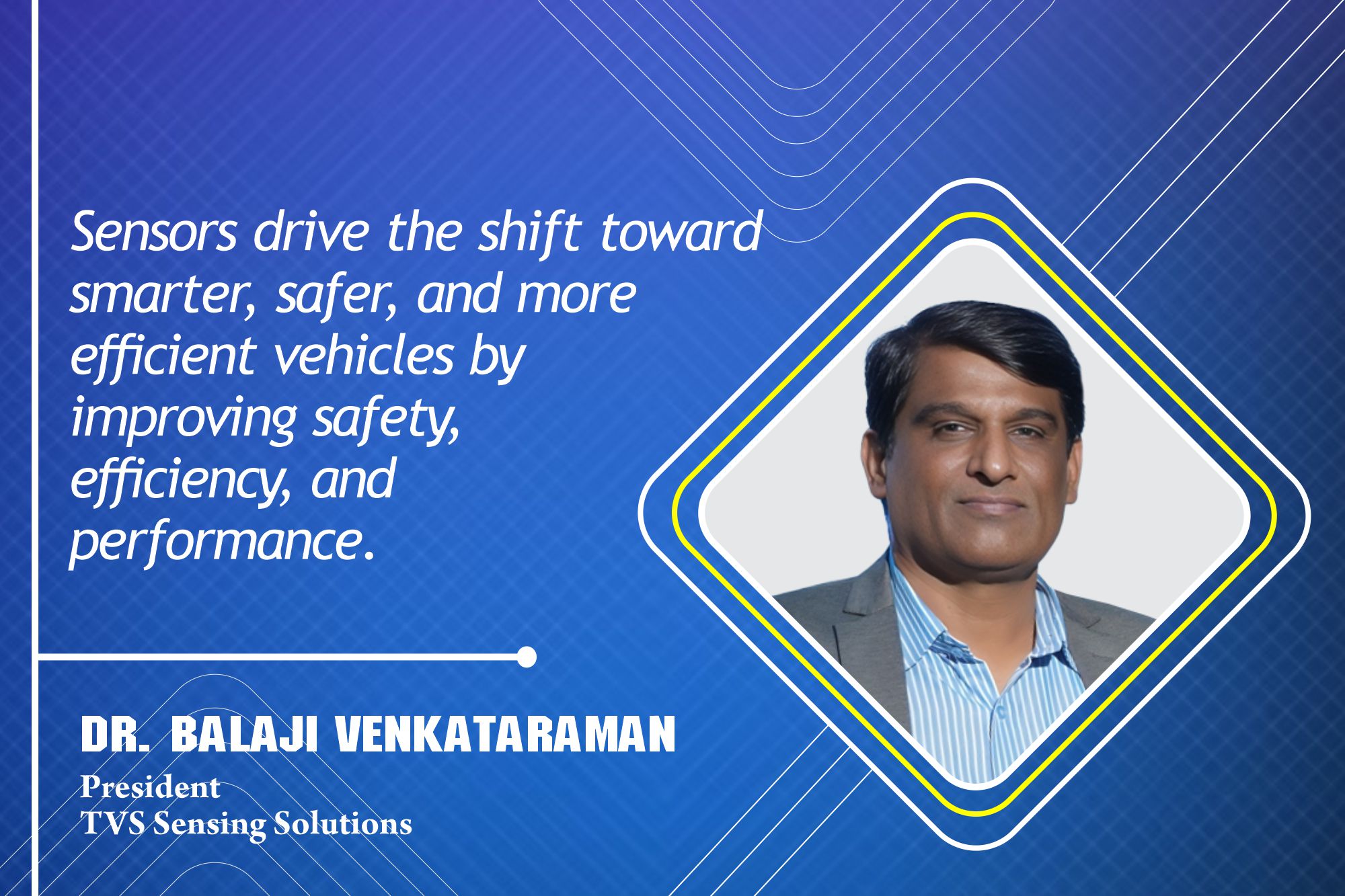How Sensors are steering the future of commercial vehicles
By Staff Report | November 23, 2024 11:11 am SHARE

Sensor integration is reshaping how commercial vehicles operate. From improving fuel efficiency to ensuring driver safety, sensors play a crucial role in predictive maintenance and fleet management, setting new standards for the future of transportation.
As commercial vehicles (CVs) become more connected and automated, sensor technology plays a key role in their evolution. These sensors are now a critical component of modern CVs, helping improve safety, efficiency and performance. From monitoring speed and tyre pressure to tracking engine health and external conditions, sensors drive the shift toward smarter, safer and more efficient vehicles.
The growing importance of sensors in commercial vehicles
In the commercial vehicle market, sensors have become essential for safety and operational efficiency. They collect real-time data on various aspects of vehicle performance, such as engine temperature, tyre pressure and environmental factors. This information is vital for improving driver safety, ensuring vehicles run smoothly, reducing wear and tear, and cutting maintenance costs.
Our government also enforces stricter safety regulations, boosting the demand for advanced driver assistance systems (ADAS) in CVs. These regulations encourage businesses to adopt sensor technologies that meet safety standards and enhance vehicle performance.
Key trends in sensor technology
One of the big trends shaping the commercial vehicle sensor market is the growing integration of sensors with other vehicle systems. For instance, sensors now work with collision avoidance and tyre pressure monitoring systems, making CVs much safer on the road. The development of more advanced sensors that can handle complex data is also making it easier for commercial vehicles to become semi-autonomous or fully autonomous.
Moreover, sensors are now paired with telematics systems to collect and analyse data in real-time. Artificial intelligence (AI) and machine learning (ML) are also being leveraged to process sensor data more efficiently, providing deeper insights into vehicle operations. This is a game-changer for fleet management, as it allows for better vehicle monitoring and predictive maintenance while minimising downtime
What’s driving the growth of sensor technology in CVs?
The primary factors driving the growth of the CV sensor market include rising demand for safety and security features, increased adoption of autonomous and connected vehicles and a stronger focus on fleet management efficiency. As these trends continue, sensor technology will play an even more central role in transforming how commercial vehicles are operated, managed and maintained, making them more reliable and cost-effective than ever.
The next-gen of sensors in CVs
Advanced sensor technologies are transforming the future of CVs. Sensors are crucial in commercial vehicles, enhancing safety, fuel efficiency and maintenance. Sensors can detect sound, light, temperature, and pressure changes, issuing alerts for mechanical faults. For example, Tire pressure sensors track real-time pressure and temperature, signaling any deviations or punctures. By offering real-time performance monitoring, they help detect early mechanical issues, preventing extensive wear and prolonging vehicle life. Predictive maintenance allows for timely repairs, reducing breakdown risks. Sensors improve fuel efficiency and vehicle safety by continuously monitoring critical systems like brakes and tyres, ensuring optimal performance and early detection of potential issues to prevent operational failures. For example, Speed and direction sensors monitor vehicle movement, while linear position and wheel speed sensors ensure precise control. Radar and LiDAR systems provide superior object detection, with LiDAR calculating distances for safer navigation. Angular sensors detect rotational shifts, enhancing vehicle stability, and Climate-pressure sensors help regulate interior conditions.
Sensor technology in CVs is advancing rapidly. These advanced systems enable predictive maintenance, reduce downtime, and improve operational efficiency by providing real-time data on engine health and tyre pressure. Increased demand for sensors in electrified and autonomous vehicles is driving innovation. Integration with collision avoidance and telematics features further ensures that CVs meet rising safety standards while delivering reliable performance. In the future, we can expect the integration of diverse sensor types, including photonics, and a focus on miniaturisation to create smaller, more cost-effective solutions. Sensors will have intelligent observation capabilities to process various data types. Ultrasonic sensors and 3D mapping technology will improve vehicle performance and safety. As these technologies continue to progress, they play a pivotal role in shaping the future of the commercial vehicle industry.
Cookie Consent
We use cookies to personalize your experience. By continuing to visit this website you agree to our Terms & Conditions, Privacy Policy and Cookie Policy.




































-20240213125207.png)

























